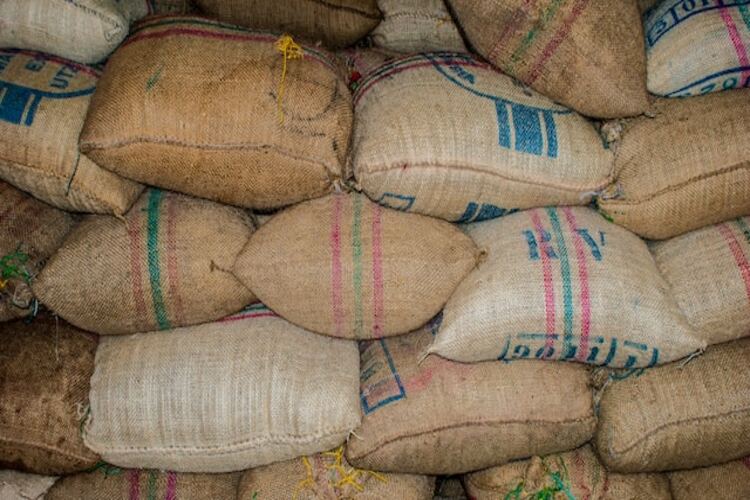
The Union government has raised the monthly supply of rice for ethanol production at a time when it has stopped the supply of foodgrains to states under the open market sale scheme. Several states have asked the Centre to resume sale of rice under this window. The government has been procuring large amounts of rice to support ethanol production and the monthly supply of rice touched a record high of 2.77 lakh metric tonne in June 2023.
The overall quantity of rice supplied to distilleries for making ethanol has hit 24 lakh tonne, says the latest data available with the Food Corporation of India (FCI). Compared with the quantity of rice provided in the same month last year, the supply in June 2023 has increased by 216%. The monthly quantity of rice supplied for ethanol was 2.95 lakh MT in May 2023.
READ | BluSmart’s affordable electric car set to shake up India’s EV market
The government had started supplying surplus stock of rice from the central pool by FCI for conversion into ethanol in 2020 as it wanted to support ethanol production. In fact, the monthly figure of rice supplied in June 2023 is the highest since the year 2020-21.
States reel under rice scarcity
To support ethanol production, states were barred from purchasing FCI rice. The Centre had discontinued sale of rice and wheat to states under OMSS with effect from June 13, 2023. However, this did not sit well with several states which have requested the Centre to supply rice under OMSS. These states are Karnataka, Tamil Nadu and West Bengal.
The government said the expected deficiency of rainfall caused by El Nino is likely to dent Kharif crop production in the country. This poses a threat to the National Food Security Act and other welfare schemes for the benefit of common citizens and may also build up to higher inflation. To avoid such a scenario and to ensure adequate stock levels under central pool for distribution, the Open Market Sale Scheme for state governments was discontinued.
States like Karnataka offer free grains to the poor and the Centre’s focus on ethanol production will leave these states in a lurch as they heavily rely on OMSS-D for ensuring availability of food grain. The Congress-ruled Karnataka government was hard hit by the decision and accused the central government of deliberately preventing it from implementing the state scheme. Besides Karnataka, Tamil Nadu, Odisha, West Bengal, Chhattisgarh and Telangana are also impacted by this decision.
On June 28, the Karnataka government announced that as it was unable to procure enough rice in the market at a reasonable cost in time to meet the needs of its free good grain distribution scheme for BPL families i.e., the Anna Bhagya scheme, temporarily cash will be given to the beneficiaries in lieu of the promised five kgs of free rice. On the other hand, Tamil Nadu is also trying to find alternate ways to support its free grains schemes by buying rice from other agencies.
Govt eyes higher ethanol production
The government is keen to ramp up the ethanol sector in the country as it is an environmentally friendly fuel. Since it is a plant-based fuel, ethanol is considered renewable. In the last two years, the country has even managed to more than double the ethanol blending and target of 20% ethanol blending has also been preponed from 2030 to 2025.
Higher ethanol production also aligns with the government’s objective of Atamnirbhar Bharat in meeting fuel energy needs of the country. To do the same, the Ethanol Blended with Petrol (EBP) Programme with higher ethanol blend targets was launched. The Ethanol Blended Petrol Programme was first launched in 2003 with an aim to promote the use of renewable and environmentally friendly fuels and reduce India’s import dependence for energy security. The same started with 5% ethanol blending, and the present government had set a target of 10% ethanol blending by 2022 and 20% blending (E20) by 2030. The latest target has been preponed.
While distilleries generally produce ethanol from molasses which is the by-product of sugar, the sugarcane route was found insufficient to achieve the 20% blending target. Hence, the government had allowed ethanol production from food-grains such as maize, damaged food grains (DFG) and rice available with FCI. This move not only helped farmers with additional income by selling the extra produce and has also broadened the base for ethanol production in the country.
To maintain the availability of rice for ethanol production, the government also banned export of non-basmati white rice in July 2023 by amending the export policy of the cereal variety from ‘Free’ to ‘Prohibited’. However, the government also said that the same was done with a view to allay rising prices in the domestic market of non-basmati rice. The ministry said that domestic retail prices of rice have hiked by 11.5% over a year and 3% over the past month.
Since March 2020 when the Centre had decided to supply FCI rice to distilleries for production of ethanol, rice has been provided at a subsidised rate of Rs 2,250 per quintal under the Open Market Sale Scheme (Domestic). The same was even lowered down to Rs 2,000 per quintal in December 2020.
However, the FCI incurs a loss as procurement and storage operations of the rice is costing Rs 3,918.05 per quintal in 2023-24. Overall, the Food Corporation of India has supplied over 24 lakh MT rice to distilleries for making ethanol since December 2020. Of the same, the maximum was bought by Chandigarh Distillers & Bottlers Ltd, followed by Bihar Distilleries and Bottlers Pvt Ltd at 1.57 lakh MT, and BCL Industries Ltd at 0.13 lakh MT. FCI generated revenue of Rs 4,844 crore by selling surplus rice for production of ethanol from December 2020.
